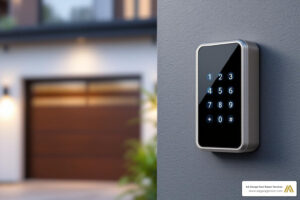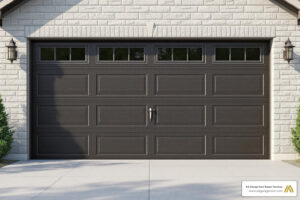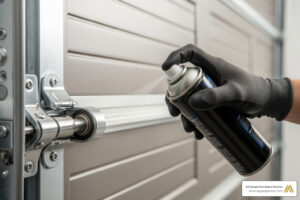
Garage doors are useful for giving you easy access to your garage; however, garage doors can become a security risk if you don’t take precautions. If you’re not careful, criminals can use your garage door or opening system to break into your garage and home. If you want to better protect your home, check out these four garage door security tips.
1. Use a Unique Passcode
If your garage door opener has a keypad, make sure you choose a unique code. Many systems come with a pre-set entry code, which you should change as soon as possible. When choosing your code, don’t choose obvious numbers, like your birthday, address, and simple codes such as 1234 or 0000. Always pick random numbers.
As with any password, you should change the passcode frequently to prevent people from guessing it. Someone may have seen you enter the code one day and decide to come back to break into your garage. Similarly, if you use the same numbers again and again, the numbers may begin to fade, revealing which digits are used in the passcode.
2. Keep the Photo Eye Clean
Garage doors are heavy and can cause serious injury if they close on someone or an animal. For this reason, modern systems have a photo eye. This eye shoots a beam to the other side of the garage door. If something or someone is in the way, the beam won’t reach the other side, and the door will pop back open.
If the photo eye becomes dirty or damaged, however, it may fail even when nothing is in the way of the door. If this happens, and you don’t realize the door has popped back open, anyone could walk inside your garage and take what they want or try to get inside your house. For this reason, you should monitor the eye, remove any debris as it appears, and keep the photo eye straight.
3. Keep the Remote Safe
Most automatic garage door openers also come with remotes, which many people keep in their car so they can open the door without having to get out of the car and enter the passcode. Of course, keeping these remotes in your car is not a great idea, especially if the car is not protected inside the garage. Anyone could break into the car, steal the remote, and get inside your home whenever they like.
Ideally, you should keep the remote with you. When at work, take it inside with you, and when you get home, bring it inside the house. The frustration of forgetting it a few times is nothing compared to someone using it to break into your home.
4. Consider Your Neighbors’ Systems
The downside to remotes is that they can work on more than one garage door. If your neighbor’s system uses the same frequency as yours, you can actually open each other’s garage doors with your own remotes. Not only does this mean your neighbor can easily get inside your home, but they may accidently open your garage door and not close it because they didn’t realize it opened.
You can fix this problem without getting a new system, but you’ll have to find the frequency setting on the system, so you can change it. Once you’ve adjusted the frequency, your neighbor’s remote should no longer open your garage door and vice versa.
As long as you care for and maintain your garage door and the opener, it should stay secure. If you want to know more about garage security, or if you need to request a quote for a new system or a few repairs, contact us at AA Garage Door today.




